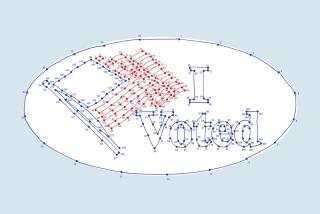State Deserves Primary Role
- Share via
The Democratic scramble to choose a presidential nominee has dominated the news in recent weeks. But California, where one out of eight Americans resides, is on the outside looking in. By the state’s March 2 primary, the presidential nomination will probably be all but over.
Once again, it appears that little Iowa, quirky New Hampshire and the small-to-middling states voting Tuesday and later in February will decide the nominee before the presidential parade nears the Colorado River. At best, California on March 2 will be just one of a dozen states that award a candidate enough delegates to collect the nomination in Boston during the party convention July 26-29. California wields the nation’s biggest delegate bloc, 440. No one would guess it by its lowly place on the primary totem pole.
The state primary date was dragged forward to March 2 from the old June primary by the quest for clout in the presidential campaign. But the earlier primary dates set by other states meant California went to all that trouble for naught. California will not only continue to lack clout in the presidential primary, it’s stuck with an elongated state primary election season. State voters who in March pick party nominees for the U.S. Senate and House and the state Senate and Assembly will have to wait until the general election in November to get it settled.
Efforts to change the system, with presidential balloting in March and a separate state primary in June or September, failed for a variety of reasons, including the cost of one additional election every four years.
Most other states hold separate primaries in presidential years, with September a popular month for state elections. California election officials say September is too close to November to give them time to prepare. A move back to June would seem the logical compromise. Objections to the cost of a separate election have dwindled because the early primary has become such a drain on both candidates and voters. Sen. Ross Johnson (R-Irvine) has wearied of his yeoman efforts to get this change. “I’ve given up,” he told Times columnist George Skelton.
There’s been a lot of talk about Democrats and Republicans joining to solve problems this year. One place to start: Make the most populous state matter in deciding who runs the country. California should play a much bigger role in the presidential primary process. As the financial newspaper Barron’s Weekly said recently, “Maybe the parties should accept that wherever America is going, California usually gets there first.”
More to Read
Get the L.A. Times Politics newsletter
Deeply reported insights into legislation, politics and policy from Sacramento, Washington and beyond. In your inbox twice per week.
You may occasionally receive promotional content from the Los Angeles Times.










